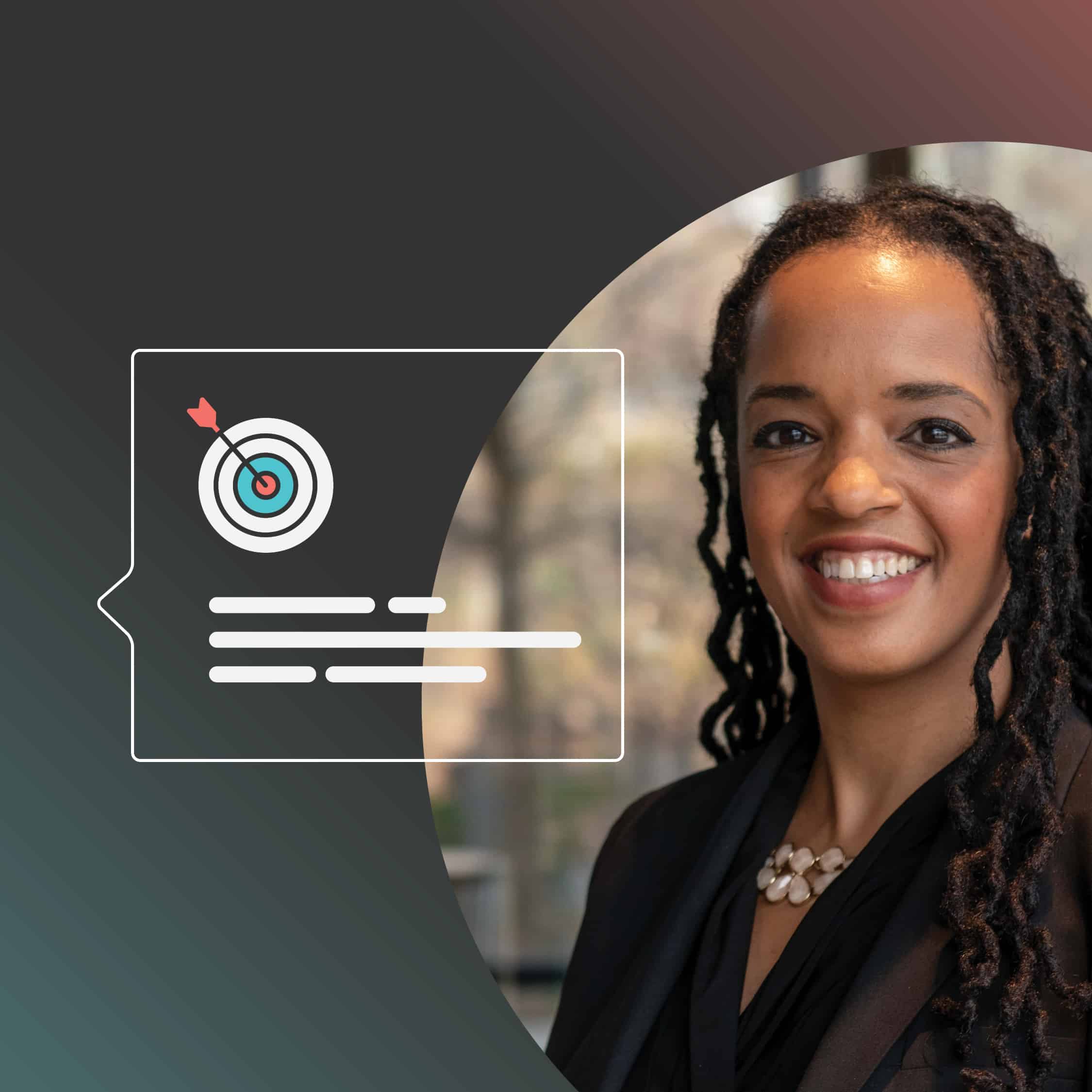Organizational work to improve diversity, equity, and inclusion (DEI) hasn’t always been valued by the business. Stephanie Creary — an organizational behavior scholar at The Wharton School with expertise in identity, diversity, inclusion, and workplace relationships — is on a mission to change that.
Being effective at work requires adequate resources and the ability to take action. “We want to feel like our work makes an impact and that we have the power and authority to drive any change that is for the better,” Creary said during a recent installment of the People Fundamentals webinar series. “That feeling that … your organization values your work is really important for people’s willingness to actually do the work,” she continued.
Tune in to hear Dr. Creary on an episode of Betterworks’ People Fundamentals podcast.
Subscribe wherever you listen to podcasts: Apple Podcasts | Spotify | YouTube
For DEI work to really make a difference, it needs the same funding and resources given to other business priorities. This discrepancy inspired Creary’s MERIT Framework, which lays out steps to elevating the status of DEI work. MERIT stands for measurable and evidenced-based, elevating DEI work, requiring participation in behavior-based DEI training, identifying leaders and employees to serve as DEI sponsors, and treating DEI as core work. Here are highlights from our conversation with Creary.
“We want to feel like our work makes an impact and that we have the power and authority to drive any change that is for the better.”
Dr. Stephanie Creary, Assistance Professor of Management, The Wharton School of the University of Pennsylvania
Make DEI goals and work actionable, measurable, and evidence-based
DEI work doesn’t have to be abstract or fuzzy — you just have to find the right metrics to track. “DEI work needs to be concrete, practical, and measurable,” Creary said. Most companies start with representation, but there are other measures.
You can measure the impact of a speaker series raising awareness about DEI issues, for example, by evaluating the workforce’s level of engagement with that content.
Achieving effective measurement requires executive sponsorship. Senior leaders must set goals for inclusion, engagement, belonging, and other relevant areas. Mid-level managers can apply high-level DEI goals to their teams, monitor impact over time and inform the organization’s perspective.
Recommended read: Measure What Really Matters: The DEIB Journey
Elevate DEI work internally and externally
Creary said a lot of DEI work is invisible, and “when something is invisible … people don’t recognize it as being important.” Getting leadership buy-in and resources becomes easier when you create visibility into progress.
Senior leaders should take the lead on DEI efforts by setting appropriate budgets and allocating resources. How much should you invest in those efforts? Creary suggests conducting market comparisons to see what similar organizations spend on this work.
Mid-level managers can implement training and share their experiences, which informs further action on DEI work. Managers need to emphasize DEI’s benefits to the team, such as the influx of new ideas that diverse and inclusive teams can create. Encourage mid-level managers to track and report these efforts as part of their performance reviews.
Recommended read: 9 Effective Diversity and Inclusion Strategies
Require leaders and managers to participate in behavior-based DEI training
Sharing knowledge is powerful but insufficient. Transformative DEI work requires changing behaviors. Implement training where “people actually are expected to show that they are doing these things to demonstrate competency with these behaviors,” Creary said.
Senior leaders should require managers to attend training that focuses on improving DEI behavior in core managerial activities. These sessions can help managers understand why the work matters and how they can support it.
Managers should leave these training sessions ready to share this information within their circles and invite others to participate. This spreads the word and increases influence on behaviors across the organization.
Transformative DEI work requires changing behaviors. Implement training where “people actually are expected to show that they are doing these things to demonstrate competency with these behaviors.”
Dr. Stephanie Creary
Identify leaders and non-managerial employees willing to serve as DEI sponsors
Many people at your organization are passionate about DEI work and want to help, but they aren’t senior leaders or mid-level managers. Provide a clear path for them to participate, too. “Some companies that I have studied have created what they call ambassador or champion programs for non-managerial employees,” Creary said.
Senior leaders must champion and engage with DEI work while sending “green flags” inviting others to participate, regardless of their title or level. For example, an executive who sponsors an employee resource group is sending a powerful invitation to interested employees.
Managers should implement ambassador programs at the team level, inviting ordinary employees to participate in DEI work.
Treat DEI work as core rather than peripheral work
DEI work won’t be properly valued when it’s perceived as a side hustle or extracurricular work. “Our titles and our reporting relationships need to reflect that this work is important,” Creary said. “It needs to be included in our management processes.”
One way to elevate DEI work to core work is by making sure that DEI leaders have a direct line of communication with business leaders. Further down the org chart, make sure that performance evaluations for mid-level managers assess their contributions to DEI work. Those evaluations should also recognize managers’ DEI work as driving business value.
Creary hopes that her MERIT framework helps change minds and attitudes — empowering business leaders to move DEI work from abstract concept to concrete goal that creates a measurable impact on the business.
Check out Creary’s webinar on demand.


